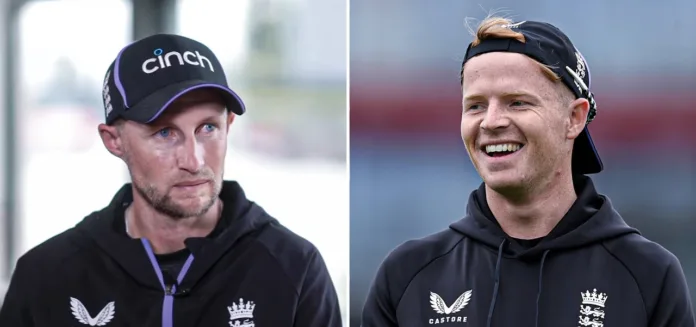England’s stand-in captain Ollie Pope leads the team to a promising start, but Sri Lanka’s resilient lower order shows they won’t be easy to overcome.
Ollie Pope’s debut as England’s Test captain got off to a promising start on Wednesday, with England dominating the early stages against Sri Lanka. By lunch, England had Sri Lanka reeling at 80 for five, thanks to disciplined bowling and sharp fielding. It seemed that Pope’s captaincy might be a straightforward task, with his bowlers executing their plans to perfection.
However, the afternoon session proved more challenging as Sri Lanka, led by their captain Dhananjaya de Silva, mounted a determined comeback. Debutant Milan Rathnayake played a crucial role, partnering with de Silva to frustrate the English bowlers and drag their side to a more respectable total. Despite England’s initial dominance, the Sri Lankan tail refused to fold easily, forcing Pope to navigate a tricky period in the field.
As the day wore on, Pope found himself tested in his new leadership role. The final couple of wickets took longer than expected to fall, with England struggling to maintain the intensity they had shown earlier in the day. The umpires’ decision to limit the pace attack due to poor light further complicated Pope’s task, weakening his bowling options at a critical moment. Nonetheless, England managed to finish the day in a strong position, though they were reminded that Sri Lanka would not be a pushover in this series.
Pope’s first day as captain showcased his potential as a leader, but it also highlighted the challenges he will face as he continues to develop in the role. While England’s early dominance was impressive, their inability to quickly finish off Sri Lanka’s innings left room for improvement. Pope’s next test will be to maintain pressure on Sri Lanka and ensure that England capitalizes on their promising start.
Analysis:
Political:
Pope’s debut as captain has political implications within the English cricket team. As a stand-in for the regular captain, Pope’s performance could influence future leadership decisions, especially as England navigates its transition from a successful era under previous captains. His handling of the day’s challenges, particularly when Sri Lanka’s lower order fought back, will be scrutinized by selectors and fans alike. This match could shape perceptions of Pope’s readiness for a more permanent leadership role.
Social:
The match also reflects broader societal debates about leadership and resilience. Pope’s early success and subsequent challenges mirror the often unpredictable nature of leadership, where early promise can be tested by unforeseen obstacles. His ability to adapt and respond to these challenges will resonate with audiences who see parallels in their own experiences of leadership and responsibility.
Racial:
This Test series, involving a diverse group of players from different racial backgrounds, highlights cricket’s role as a global sport that transcends racial boundaries. Pope, leading a multicultural English team against Sri Lanka, is part of a broader narrative of inclusivity and representation in international sports. The interactions and sportsmanship on display contribute to ongoing efforts to promote racial harmony and understanding through cricket.
Gender:
While this match focuses on men’s cricket, Pope’s leadership can also be viewed through the lens of gender dynamics in sports. The increasing visibility of women’s cricket and female leaders in sports administration places additional scrutiny on male captains like Pope to lead by example. His performance could inspire or inform discussions about leadership qualities valued in both men’s and women’s cricket.
Economic:
Economically, this Test series has implications for both the England and Wales Cricket Board (ECB) and Sri Lanka Cricket (SLC). Pope’s leadership in a competitive series could draw larger crowds and increase viewership, boosting revenue for the sport. Conversely, a one-sided series might reduce interest and financial returns. The resilience shown by Sri Lanka suggests that this series will be competitive, which could help maintain high levels of engagement and, consequently, economic benefits for both cricket boards
